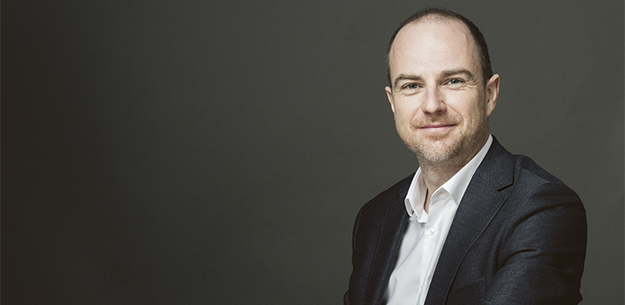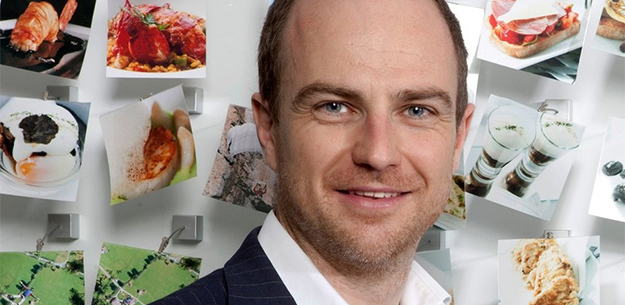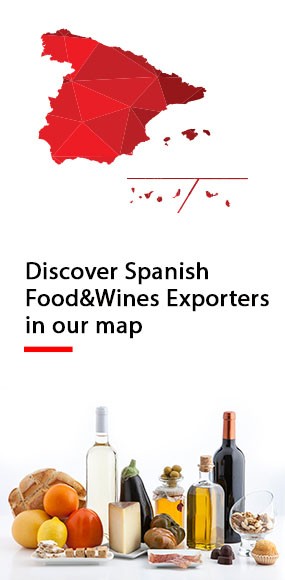.png.transform/rendition-xs/image_image%20(1).png)
Andreas Kubach, a Master of Wine in love with Spanish wine
Pedro Ballesteros MW is no longer alone. Since 2017, Spain has two new names to add to the Olympus of the Masters of Wine. We're talking about Fernando Mora and Andreas Kubach. We spoke with Andreas and asked him about the hard road to the Master of Wine title, and about his passion for Spanish wines infused with personality and singular stories.
Text: Rodrigo García Fernández/®ICEX

When did you decide to set off on your journey to obtain the title of Master of Wine? How would you summarize this adventure?
I've been in contact and worked with Masters of Wine since my early days in the wine world, many of whom were international buyers and customers of mine. I've always been impressed by their professionalism and level of wine tasting, typically accompanied by humility and a sense of “fair play.”
Years later, when I was the general manager of Pagos Marqués de Griñón, a group of MW came to visit Dominio de Valdepusa and insisted I sign up for the program. And, during my time at Península Viticultores, I was in contact with one of them, Sam Harrop MW, who, together with Jaime Goode, is also the co-author of what is considered a manifesto in the wine world: Authentic Wine. It has been an incredible journey. I learned much more than I ever thought possible, and I've made friendships that will last a lifetime. It is definitely a long-distance race, particularly if, like most people, you have to do it while simultaneously working at a job that demands a lot of time and energy in its own right.
From your personal and professional experience, what image do Spanish wines have in international markets? Do you think the MW title will give you the opportunity to promote Spanish wines in international forums?
I've been promoting Spanish wines around the world my whole life and I will continue to do so! The Master of Wine gives you a global context and recognition in international markets; what you're talking about, whatever you produce or sell is backed by what you learned while obtaining the title. That is why so many MW work in winery management, from the conception of the wines to their sale.
In my case, beyond promotion, the emphasis of our work at Península is on the integral management of vines and wineries, in making wines with more personality, that are more authentic and sustainable and, in short, wines that are more relevant to consumers around the world. I think we urgently need to get past the notion that the only thing that Spanish wines are lacking is “promotion.” Promotion is infinitely easier and more effective when you have vines that people want to buy.
Regarding the image of Spanish wine, I think that it has polarized. Those professionals and consumers that are most interested in wine recognize the quality and personality of the wines in the upmarket segments. I also think this segment has a lot of understanding about the enormous diversity of our country and a real interest in the consumption and commercialization of wines from all over Spain, as long as they reflect an identity in the glass.
At the other extreme, the image of a reliable but cheap wine for everyday consumption endures. As the large producer this country is, we should be able to respond to all market segments and make them compatible, although, I'm still not seeing the successes enjoyed by the most singular wines transferring to the middle ranges.
Have you had the opportunity to share with Pedro Ballesteros MW what it means to be a Master of Wine?
Pedro was my mentor throughout the five years of the program, up until I passed the exams. I will always consider him my teacher, as well as a great friend. Pedro is one of the most brilliant men I know, and incredibly generous. Our country is truly privileged to have him as a doyen of the Spanish Masters of Wine. He combines his enormous knowledge with a true passion for wine and the unique perspective that being outside of the industry and living in Brussels affords him. Pedro is almost like the conscience of Spanish wine. We need to take good care of him!
What advice would you give to people who dream of becoming a Master of Wine?
What we would like to see in a few years is at least ten Spanish Masters of Wine. I think it could be very positive for our country. The MW program teaches you to place wines within a global context and to think in a multidisciplinary way – two things that we're not particularly good at in Spain. Furthermore, it would be ideal if, among the Spanish MW, all different types of professionals were represented: agronomists, enologists, winery managers, distributors, journalists, some sommeliers....
The first step to becoming a MW is finding out about the program, understanding what it implies, reading the website and attending an informational session. For a lot of people, the first step is the WSET Diploma, but the Institute of Masters of Wine is actually a completely separate institution from WSET, with a different philosophy. If one is a trained oenologist, winery manager or similar, with sufficient professional experience in the industry, the Diploma isn't necessary. Then I would get in touch with one or more MW to exchange impressions and, finally, with the Institute's headquarters to find out how to sign up for the program.
Translation: Adrienne Smith/©ICEX.


- Image 1
- Image 2

